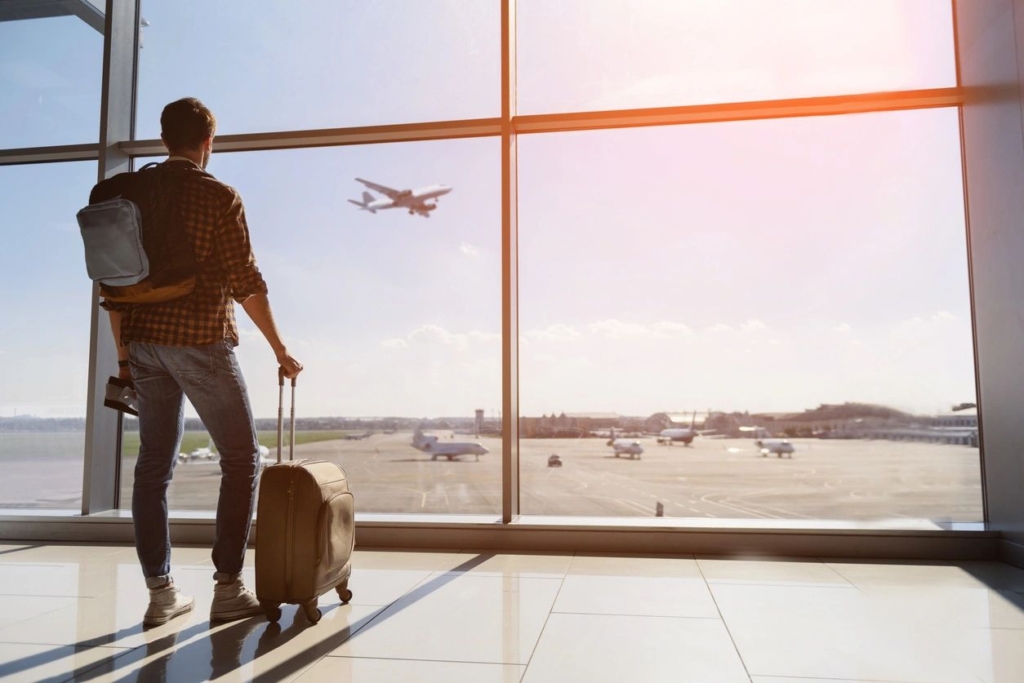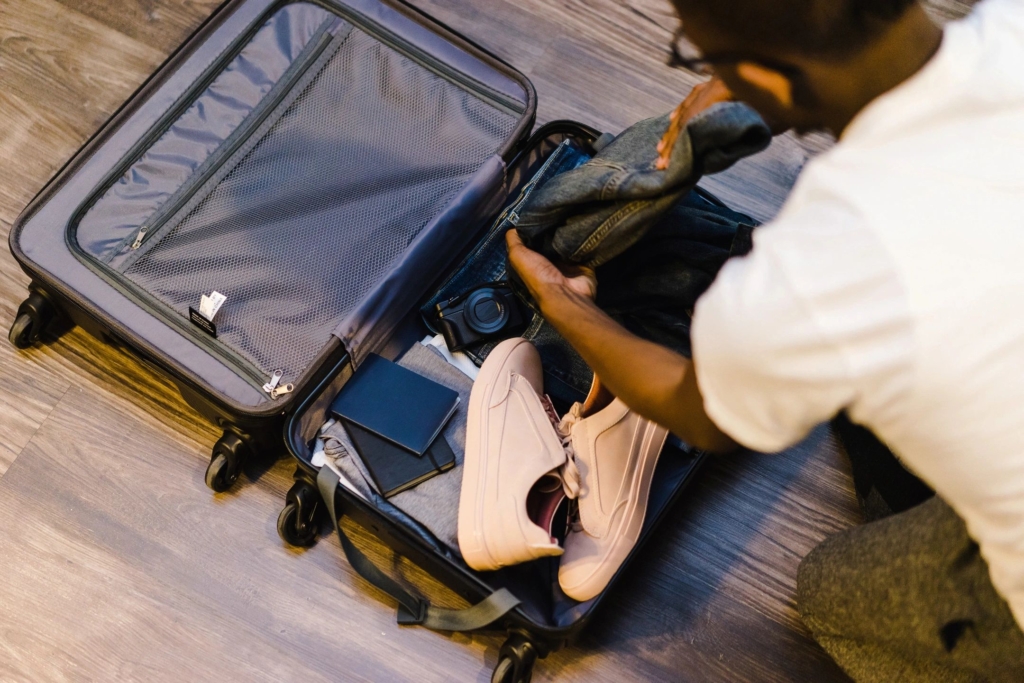
Traveling with our elder parents can get tricky. Maybe your elder parents will be traveling alone. Planning a vacation with your aging parents can be stressful. There are so many things to think about, so much information to research, and the list of potential pitfalls is long. But never fear – we have done the homework for you! Here are some tips on how to make this trip go smoothly and turn out well for everyone involved.
The number of Americans over the age 72 is expected to double by 2030, and the majority of these seniors will be traveling. A recent study found that 74% of adults aged 75+ who travel outside their home country for vacations are likely to face mobility limitations. How do you support your aging parents as they plan a trip? The very first thing you should consider is whether or not the trip itself will be safe for them to embark on. Expect some push back if you feel they will be insistent on going even if you discourage them. This is another indication to them that they are losing their independence and that is extremely hard for them. If it is a family trip, give them the option to make the decision to go or not to go. If they decide on going then we are going to give you some tips and strategies to help make the trip successful, enjoyable and stress free!
Every year, more and more Americans find themselves in the position of supporting their aging parents as they take a vacation. You might be wondering how you can best support your aging loved ones on this journey. We’ve compiled some tips that will help make traveling with an older adult safe and enjoyable for everyone!
When you have aging parents, it can be hard to know what the best vacation destination is for them. Will they enjoy a family vacation? Do they need a place that caters specifically to their needs as an older person? There are so many questions and not enough answers!

When it comes to taking care of aging parents, there are many things that you need to keep in mind. The best way for your parents to enjoy their vacation is by making sure they not only have the right accommodations and activities planned, but also by giving them peace of mind while they are away from home. Here are some tips for how you can help your aging parent travel safely and comfortably when they visit a new place!
Be sure that you talk with your parent(s) about their health history before booking any flights or hotels. This will help you find routes that might be difficult for them to navigate or destinations that they may not want to visit due to personal preference.
Here are some general tips and we will get into more specifics in a minute.
1) Choose your destination wisely
2) Make sure they have all necessary information
3) Create an emergency contact list before leaving the house
4) Bring items like medicine or eyeglasses if needed
5) Stay healthy by getting enough sleep
The best course of action is to plan things ahead. For our 2-week trip to Alaska we spent one year planning, lining up excursions, etc. We are not saying you need to take one year to plan a trip with or for your elder parents to go visit family over the holidays, but don’t devalue the planning process. It will save a lot of headaches in the long run.
Here is a list of things to consider when traveling with your aging parent or helping them prepare their solo trip.
1. If you are planning a vacation, consider doing some research on “Senior Friendly Destinations”. For example, it might be beneficial to arrange an all-inclusive destination where they can stay on the vacation property and have all the amenities close by. Consider Language barriers. You might need to look at what hotels or destinations have wheel-chair accessibility (or other disability related amenities) a room near an elevator, how close is a medical facility, etc. A cruise may be another option where everything is included, and they don’t have to worry about getting around on their own. Of course, our current climate makes cruises a challenge but would be a good option. Ask about “Senior Discounts”. In this climate we also have to consider “mask” requirements.
2. Consider medical needs before travel. Some companies offer medical travel companions to assist with cares and any physical needs while traveling. Medications are a big priority when preparing to leave home. How long will they be gone? Would a pill planner box be sufficient to hold their medications while they are gone? Make sure they have planned out their prescriptions before they leave. It may be very difficult to get their prescriptions fille while they are away especially if they have a Medicare Advantage Plan and they must use a certain “in network” pharmacy to obtain their medications. Most often, you cannot get refills until a week or so before you run out and then not for another 30 days. This may need some planning and working with your doctor or pharmacy to make sure they have enough medication to get them through their trip. Make sure the medications are in their carrying on baggage for a flight and not in their checked bag in case the checked bag was to get lost.
Will they need to bring ostomy supplies? Consider odor control for a flight where people are in close contact.
Consider their sleep schedule when scheduling travel.

Lastly consider any dietary restrictions and if they can be accommodated during their travel. If a diabetic, make sure they have emergency supplies with them and something to take in case their blood sugar gets low. This can be common on an early morning flight if their breakfast routine will be interrupted. I did witness this first-hand on an early morning flight where an older gentleman was nervous about flying had a couple of cocktails before flying and did not eat. He became very weak and sweaty on the flight and 2 of us as medical professionals had to assist in hopes of not having to make an emergency landing. Be careful with alcohol consumption as it can both raise and/or lower your blood sugar depending on consumption. We need to make sure every angle is covered and allow adequate time to prepare. Flying can dehydrate you and can lead to not processing blood sugars as well so elevated blood sugars are also a consideration with diabetics and travel.
3. A big concern for anyone traveling with oxygen is are they going to fly?
Oxygen need increase during flight because of the high altitudes the plane will be in. Oftentimes the rule of thumb is to double the amount of oxygen you need at home at rest during your flight. For example, if you normally are on 2 liters of oxygen at rest at home you may need 4 liters of oxygen during your flight. The best way to manage your needs are to have a portable pulse oximeter that you put on your finger and see where your blood oxygen level is in a quick minute. Check with your health care provider if you don’t already know what your preferred range is. Some people would be 92% or greater, but if you have a disease such as C.O.P.D. or Chronic Obstructive Pulmonary Disease, your oxygen requirements may be a little lower or if you are a CO2 retainer your oxygen needs may be in the 88-90% range. We can’t stress enough that you need to check in with your health care provider to determine your optimal oxygen level if you don’t already know that. Another concern when traveling with oxygen is what type of oxygen delivery system is going to be used to make sure oxygen is always available. We will address that in the next bullet point.
4. Create a list of “must haves” for the trip. This will help you determine the type of accommodations needed for the venture. For example, if it is not feasible to take a wheelchair with you, does the hotel or resort have an option to rent a wheelchair? If on oxygen, is it possible to find a local Medical Equipment Company that can deliver an oxygen concentrator to the room so the portable oxygen can be used during the day when out and about? Make sure you figure out who will pay for that and if covered by insurance or their Medicare Plan. Oxygen tanks would not be a very effective way to travel and some modes of travel have restrictions on using oxygen tanks during travel. Will you need to make sure air conditioning is available? What sight-seeing options will there be? How close will they be to the lodging or is it possible to arrange for a bus tour or city tour to make it easier for them? Consider time it will take to get ready. Your elder family member may need extra time to get ready. Ask other family members to take on certain tasks to prepare for the trip to even out the load and prevent someone from getting totally overwhelmed in this process.
5. Flying with an elder parent or senior solo flights: TED Hose or Compression stockings are a good idea for seniors to use during flight to reduce the risk of blood clots with decreased circulation while flying. Check with your health care provider to make sure this would be appropriate based on any other health conditions. Make sure, you notify the airlines of any considerations that need to be addressed at least a couple of days before the flight. Consider the seat on the airplane. Would an isle seat be more conducive vs. a middle or window seat? Consider how mobile they are if they need to get up and use the rest room. What other things may they need to make their flight more comfortable such as a neck pillow, blanket, reading or audio materials, etc.
6. Elder Parents traveling with Dementia. I had a personal experience on a recent flight where a gentleman sat next to me in the middle seat and his wife sat somewhere else on the plane. I saw them at the gate before boarding and it was clear he was suffering from Dementia of some sort. As an R.N. I am always keeping my eye out for situations that can potentially go “south”. Low and behold he was seated next to me. What a coincidence! I think of it as a “God Thing” and I was happy to help! During the flight, I had to open his cookies, request a beverage for him using my best judgement of what kind, and had to assist him often during the flight. Thank goodness he liked the Ginger Ale I ordered him! When it was time to get off the plane, he followed me out and I had to ask the flight attendant to take care of him until his wife could be found. He would have just followed me right off the plane and would have been lost is a New Your minute!! Remember that unfamiliar surroundings can exacerbate or make the memory issues worse. Consider this when traveling and being away from home. What precautions will need to be taken if your elder parent or spouse had “memory” issues?

7. Create a packing Checklist. We have included a free PDF checklist for you to use as a guide if needed. Consider medications, (travel with a current medication list in case of an emergency complete with listed allergies is very helpful) comfortable shoes, hearing aids, glasses, denture supplies, grooming supplies, adaptive equipment, wheelchairs, canes, walkers, diabetic supplies, and proper clothing for the climate of their destination. When planning clothing consider the “dress codes” that may be applicable for certain types of travel such as cruises or certain excursions or outings that may be planned. Will you need any incontinence supplies? You may need to pack extra under clothing or consider if soiling their clothes is a possibility.
8. Consider Insurance when traveling. Some insurance such as straight Medicare or some Medicare Advantage plans do not cover medical expenses when traveling outside of the country. If theirs does not cover when traveling out of the country, consider a supplemental policy to cover them while traveling. Some Medicare Advantage Plans and other insurance with cover emergency or urgent care visits while traveling abroad. Contact your insurance professional to assist in providing more detailed information on your specific needs
9. Consider a “dry run” Maybe plan a day outing or a family excursion on your own to see how they handle being away from home. This could give you great insights on how to help plan for them being gone and what their particular needs may be. This is a good time to see what types of things may cause them unease or stress and how you can have those concerns addressed
Oftentimes, senior citizens get very nervous about traveling to new places and may feel like they are losing their independence because of the extra help that is required for travel. Try not to take it personally when your parents refuse some of your suggestions or reject your helpful ideas; thank them for considering what you are suggesting and encourage them to try your ideas later.
Older adults may not feel like they need help with travel, but it is important that you offer assistance and do what you can to make their trip as easy and enjoyable as possible. If a family trip to a wedding or a funeral is impossible for them to attend consider making other arrangements such a creating a video for them to watch, a photo album made just for them, a memory book for people to write in that have messages written just for them.
With these steps, your aging parent can have a safe and enjoyable vacation. There is no need to worry about the logistics of things like information or prescriptions in this article because it covers everything you’ll need to know to prepare for an amazing trip with your loved ones. If you want even more tips on how best to care for yourself before traveling, be sure to sign up for our email list that will share more health-related information to assist you in navigating the health care system!
Thank you for taking time out of your busy day to spend some time here. Our goal is that you receive some value from our posts and can use it in your every-day life. Please feel free to make some comments with questions on your unique situation or a suggestion you might have from your experience with traveling with your elder family members.
Take care and talk soon,
Pam



